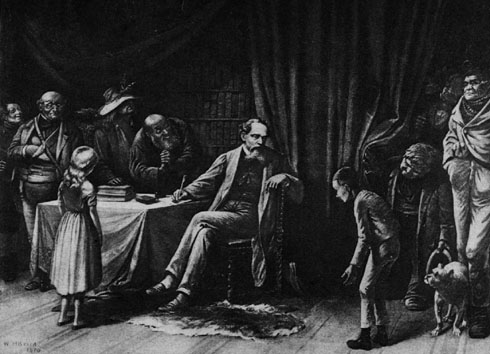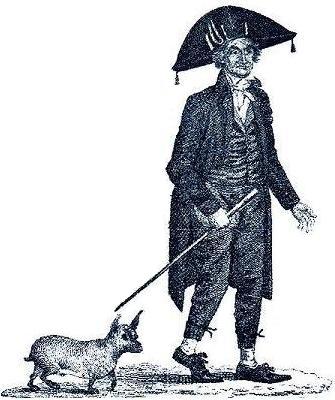The following ludicrous direction to a letter was copied verbatim from the original and interesting document:
too dad Tomas
hat the ole oke
otchut
I O Bary pade
Sur plees to let ole feather have this sefe.The letter found the gentleman at ‘The Old Oak Orchard, Tenbury.’ In another letter, the writer, after a severe struggle to express ‘Scotland,’ succeeded at length to his satisfaction, and wrote it thus: ‘stockling.’ A third letter was sent by a woman to a son who had settled in Tennessee, which the old lady had thus expressed with all phonetic simplicity, ’10 S C.’
— Robert Conger Pell, Milledulcia, 1857



